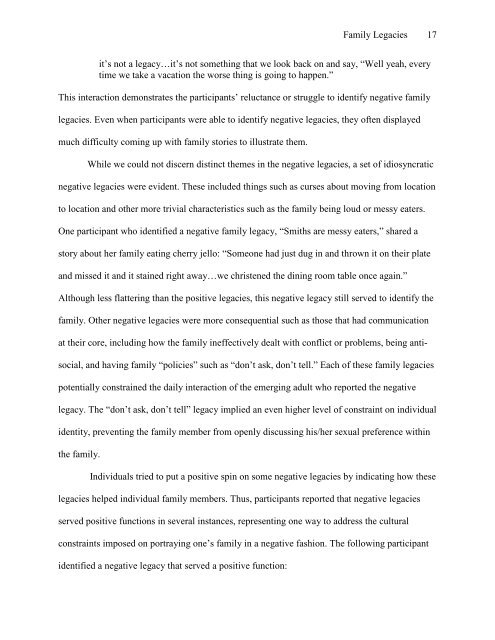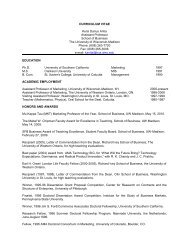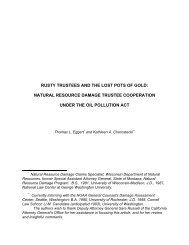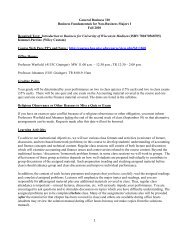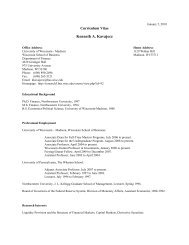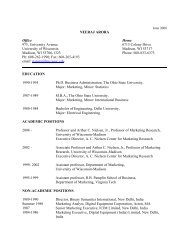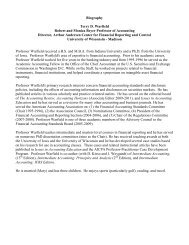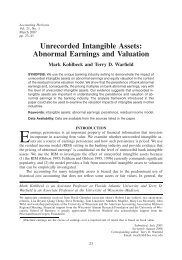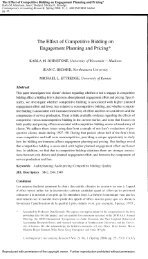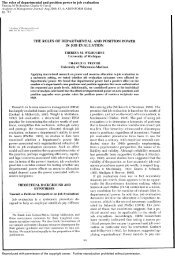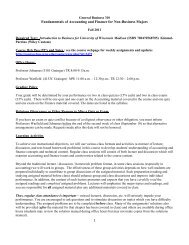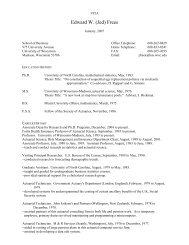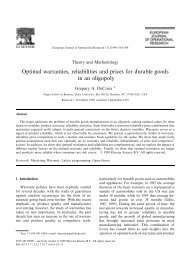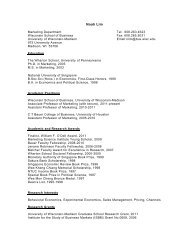family legacies - Wisconsin School of Business - University of ...
family legacies - Wisconsin School of Business - University of ...
family legacies - Wisconsin School of Business - University of ...
Create successful ePaper yourself
Turn your PDF publications into a flip-book with our unique Google optimized e-Paper software.
Family Legacies<br />
it’s not a legacy…it’s not something that we look back on and say, “Well yeah, every<br />
time we take a vacation the worse thing is going to happen.”<br />
This interaction demonstrates the participants’ reluctance or struggle to identify negative <strong>family</strong><br />
<strong>legacies</strong>. Even when participants were able to identify negative <strong>legacies</strong>, they <strong>of</strong>ten displayed<br />
much difficulty coming up with <strong>family</strong> stories to illustrate them.<br />
While we could not discern distinct themes in the negative <strong>legacies</strong>, a set <strong>of</strong> idiosyncratic<br />
negative <strong>legacies</strong> were evident. These included things such as curses about moving from location<br />
to location and other more trivial characteristics such as the <strong>family</strong> being loud or messy eaters.<br />
One participant who identified a negative <strong>family</strong> legacy, “Smiths are messy eaters,” shared a<br />
story about her <strong>family</strong> eating cherry jello: “Someone had just dug in and thrown it on their plate<br />
and missed it and it stained right away…we christened the dining room table once again.”<br />
Although less flattering than the positive <strong>legacies</strong>, this negative legacy still served to identify the<br />
<strong>family</strong>. Other negative <strong>legacies</strong> were more consequential such as those that had communication<br />
at their core, including how the <strong>family</strong> ineffectively dealt with conflict or problems, being anti-<br />
social, and having <strong>family</strong> “policies” such as “don’t ask, don’t tell.” Each <strong>of</strong> these <strong>family</strong> <strong>legacies</strong><br />
potentially constrained the daily interaction <strong>of</strong> the emerging adult who reported the negative<br />
legacy. The “don’t ask, don’t tell” legacy implied an even higher level <strong>of</strong> constraint on individual<br />
identity, preventing the <strong>family</strong> member from openly discussing his/her sexual preference within<br />
the <strong>family</strong>.<br />
Individuals tried to put a positive spin on some negative <strong>legacies</strong> by indicating how these<br />
<strong>legacies</strong> helped individual <strong>family</strong> members. Thus, participants reported that negative <strong>legacies</strong><br />
served positive functions in several instances, representing one way to address the cultural<br />
constraints imposed on portraying one’s <strong>family</strong> in a negative fashion. The following participant<br />
identified a negative legacy that served a positive function:<br />
17


